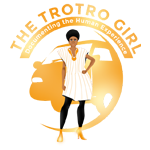
A traveller’s reflections
I walked into the reception and was greeted with a beautiful wide smile. The lady spoke to me in slow German as she ushered me in. She showed me the free materials they had. I immediately grabbed the German Bible and the booklet with content for children. At this point, I could not understand a word of what she was saying. So, I smiled and she smiled back. We both knew there was not much communication. The few words from my A1.1 vocabulary pool were not enough to give me much comprehension. I managed to say, “Ich bin hier fur Deutschkurs”. She nodded and walked me into a big hall with lots of people. I thanked her and found myself a seat.
Two minutes in and I already knew that was not the class for me. It was the introductory class. At least my “hallo hallo” and “ich bin Ich bin” could easily qualify me as a TA in that class (lol). I got up and stood in the hallway listening intently to the other two classes. One was a nursery for the very young ones. The other was a higher level than the class I had been in earlier. So, I walked in there with my knees trembling. The teacher welcomed me and asked me to introduce myself in German. He asked the class a few questions about Ghana in German – the continent, the official language and how it is spelt using the German alphabet.
We are a merger of all kinds of identities.
When I took my seat, I looked around the classroom wondering who these people were and what their lives were like back home from where they came. To get us to practise more, the teacher put us in groups or in pairs. Whenever we finished the assignment before the time was exhausted, they’d tell me about their lives back home, especially those who spoke English. “I was a teacher in my country”. “For my work, I was an engineer”. “I have been to this and that country in Africa”…. They wanted to know if I were a refugee too. So, I’d tell them in my broken German, why I was in Germany.
“Did they know they were all over in the news? Were they aware that Angela Merkel received a lot of backlash for opening Germany’s doors to them? Could Germany soothe their pain of having to flee Syria with only the clothes on their backs? How did they feel about this Christian organisation taking them in and teaching them German, giving them supplies when they were of a different faith? And did it even matter? These and more I wanted to ask but didn’t dare to.
Two years later, I found myself in France. This time round as a volunteer. Annecy, the city in which I was, is a tourist destination. It has mountains and lake and an old city which is home to the most photographed site in France. Among the many foreigners who I met were migrants from all over Africa and Asia. The context in France was different from my encounter with refugees in Germany. Many of them had moved from city to city seeking asylum. However, once you are seen as an economic migrant, it is quite hard to beat the system.
We are all only human.
However, minors irrespective of where they are from, are protected by law. This meant that if your grandfather’s childhood friend happened to be in France as an economic migrant who had been denied asylum in one city, you might see him again in another city. However, this time round, he`d claim to be a teenager. These were people like me, Black, African, and far away from home.
Yet, in many ways, I wasn’t like them, I had not come seeking economic shelter, I had not come through the desert or with fake documents. I did not have to depend on the donations of others for warm clothes or a daily meal. I moved about with my African pride, mostly wearing it in my appearance and in the topics I brought up for discussion. Then there was my wounded African pride in seeing my people cleaning the streets, the trains, guarding shops, sleeping out in the cold.
This time round, I dared to ask some of the questions I hesitated to ask back in Germany. “Why did you leave home? Why are you here? After knowing all you know now, would you still take the risk of crossing the Sahara and the Mediterranean? What about family? What about your identity; the dignity of the Black man? Doesn’t it matter?
We are all travellers: travelling through time, travelling through life.
I got two answers back. The first was silence – silence from the pain of the inhumane experiences they have had, some of regret and dashed hopes or simply because they did not trust me enough to share the heaviness of their stories with me. The second was the unflinching passion, the resilience, and the faith that even in this foreign land where all, for them, was as gloomy as a cold winter’s day, their dreams were still valid. That “their why” for which reason they set out on this perilous journey, watching their kin perish “comme les mouches” (like flies), is still very much relevant.
The question of identity is hard to define. We are a merger of all kinds of identities – religious, cultural, political, sexual, racial …. An endless list which makes it complex. In my level 200 African studies class, I remember our lecturer sharing the experience of some African Americans. “We rejoice over our coming back home to Africa only to have to choose a country. We get to Ghana and have to choose an ethnic group. Then within the ethnic group, there are clans and specific families with their own customs and traditions. Who are we and where do we belong?”
Therefore, while it is true that we shared an African identity, our backgrounds, experiences and even the circumstances for which we found ourselves in France gave each of us a different way of viewing Africa. Some longed for home and others may not have wanted anything to do with Africa anymore.
I learnt that I should not project my ideals on others.
Yet, we are all only human – from the Asian tourist in America to the African expat in Europe to the European Refugee in Africa to the American migrant in Asia, to the rest of us at HOME. We are all travellers: travelling through time, travelling through life.
I learnt that I should not project my ideals on others. That pride in their African identity would not feed them nor the loved ones they remit to. This put me in a privileged situation as compared to most of them. That talk alone is cheap if it is not backed by action. Action in my case would be to do the thing, one step at a time, in my own corner that will ensure that the African in the house, office, church, country next to mine, will be proud of being African. That I should be open to learning, unlearning, and relearning.
So, here’s the traveller, on a journey to the land of growth, owning her story and showing up each day for herself and what she believes in. Yet realising and accepting that everyone does not have to agree with her and that that too is okay.

Great piece Bel!
I have added to my virtues per reading this piece. Very insightful and uniting, I must say.👏👏
Thank you, Calvin
Great piece Bel!
I have added to my virtues per reading this piece. Very insightful and uniting, I must say.👏👏
Thank you, Calvin.
I`m glad that you learnt something from reading this.